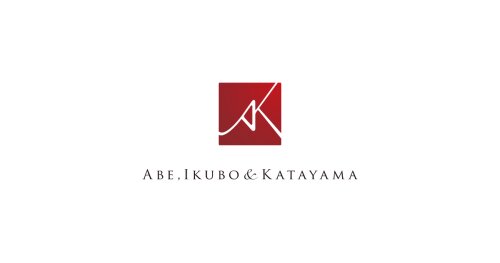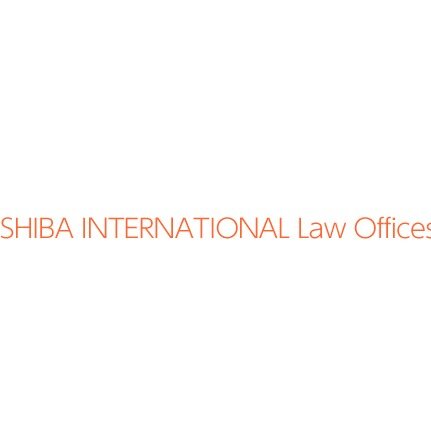Best Trademark Lawyers in Japan
Share your needs with us, get contacted by law firms.
Free. Takes 2 min.
Or refine your search by selecting a city:
List of the best lawyers in Japan
About Trademark Law in Japan
Trademark law in Japan is governed by the Trademark Act, which was established to protect brand identities and consumer interests by preventing confusion over similar trademarks. Japan is a member of international agreements like the Paris Convention and the Madrid Protocol, which underscores its commitment to aligning domestic trademark regulations with international standards. The Japan Patent Office (JPO) is the primary body responsible for the registration and management of trademarks in Japan. With Japan's economy being one of the largest globally, maintaining a strong trademark strategy is crucial for both domestic businesses and foreign entities operating within the country.
Why You May Need a Lawyer
Legal assistance can be crucial in several trademark-related scenarios in Japan. Common situations where you might need a lawyer include:
- When filing for a new trademark registration to ensure compliance with Japanese regulations and to enhance the chances of approval.
- If there are disputes or oppositions from other parties regarding your trademark application.
- If you suspect trademark infringement or need to enforce your trademark rights.
- For navigating complex cases involving international trademark issues, given Japan's adherence to the Madrid System.
- In the drafting of licensing or franchising agreements involving trademarks.
- When renewing a registered trademark, as failure to comply with renewal procedures may result in loss of rights.
Local Laws Overview
Trademark law in Japan has several key features important for businesses and individuals:
- Trademark Protection: Trademarks can include not just logos and brand names, but also colors, sounds, and three-dimensional marks.
- Registration Process: Applications are filed with the JPO. The process involves examination for compliance with legal requirements, publication for oppositions, and eventual registration.
- Duration and Renewal: Trademark protection lasts for 10 years from the date of registration and can be renewed indefinitely for additional 10-year periods.
- Opposition System: Third parties can oppose a trademark application within a certain period post-publication.
- Use Requirement: Registered trademarks must be used within three years to maintain their validity.
- Infringement Remedies: Legal remedies available include injunctions, damages, and other legal actions to protect trademark rights.
Frequently Asked Questions
What can be registered as a trademark in Japan?
In Japan, you can register traditional trademarks such as names and logos as well as non-traditional trademarks like sounds, colors, holograms, and three-dimensional shapes.
How long does it take to register a trademark in Japan?
The entire trademark registration process in Japan typically takes around 8 to 14 months, depending on the specifics of the application and any opposition filed.
Is it necessary to use a trademark attorney for registration?
While it is not mandatory, hiring a trademark attorney can substantially increase the likelihood of successful registration and help navigate complex legal requirements.
Can a foreign entity apply for a trademark in Japan?
Yes, foreign individuals and companies can apply for Japanese trademarks, either directly through the JPO or via the Madrid System for international trademark registration.
How does opposition work in the trademark registration process?
After a trademark is published in the JPO Gazette, any third party has 30 days to file an opposition to the registration. The JPO then reviews the opposition and makes a final decision.
What is the consequence of not using a registered trademark?
If a trademark is not used for more than three consecutive years, it can be subject to cancellation for non-use.
What are the penalties for trademark infringement in Japan?
Trademark infringement can lead to civil remedies like injunctions and damages, as well as potential criminal punishments including fines and imprisonment.
Can I appeal a JPO decision on my trademark application?
Yes, applicants can appeal JPO decisions within three months of the decision date by filing an appeal with the Japan Intellectual Property High Court.
What is the cost of registering a trademark in Japan?
The cost involves an application fee and a registration fee, with total costs typically amounting to several tens of thousands of yen depending on the specific services provided by a trademark attorney.
How often does a trademark need to be renewed?
Japanese trademarks are valid for 10 years and must be renewed every 10 years to maintain protection.
Additional Resources
For further research and assistance, consider the following resources:
- Japan Patent Office (JPO): The official body for trademark applications and information.
- Japan External Trade Organization (JETRO): Offers guidance for foreign businesses on navigating Japanese regulations.
- Japanese Group of the International Association for the Protection of Intellectual Property (AIPPI Japan): Provides insights and seminars on intellectual property rights.
- Local Bar Associations: Offer lists and recommendations for finding trademark lawyers in specific regions of Japan.
Next Steps
If you need legal assistance with a trademark issue in Japan, consider the following steps:
- Identify and document the specifics of your trademark needs or issues.
- Consult with a qualified trademark attorney or legal expert familiar with Japanese trademark law.
- Utilize online resources to research potential legal service providers and compare their areas of expertise.
- Prepare any necessary documentation, including proof of trademark use, previous correspondences, and business plans.
- Schedule a consultation to discuss strategy, costs, and the timeline with your chosen legal advisor.
Lawzana helps you find the best lawyers and law firms in Japan through a curated and pre-screened list of qualified legal professionals. Our platform offers rankings and detailed profiles of attorneys and law firms, allowing you to compare based on practice areas, including Trademark, experience, and client feedback.
Each profile includes a description of the firm's areas of practice, client reviews, team members and partners, year of establishment, spoken languages, office locations, contact information, social media presence, and any published articles or resources. Most firms on our platform speak English and are experienced in both local and international legal matters.
Get a quote from top-rated law firms in Japan — quickly, securely, and without unnecessary hassle.
Disclaimer:
The information provided on this page is for general informational purposes only and does not constitute legal advice. While we strive to ensure the accuracy and relevance of the content, legal information may change over time, and interpretations of the law can vary. You should always consult with a qualified legal professional for advice specific to your situation.
We disclaim all liability for actions taken or not taken based on the content of this page. If you believe any information is incorrect or outdated, please contact us, and we will review and update it where appropriate.
Browse trademark law firms by city in Japan
Refine your search by selecting a city.
















